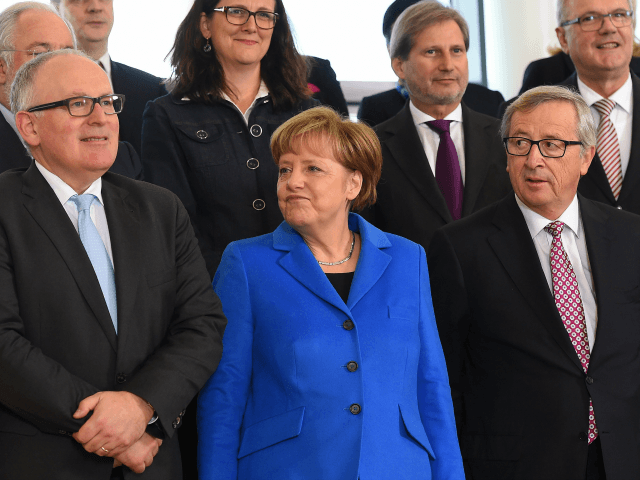The United Kingdom’s decision to Vote Leave in the referendum on June 23rd should have been a wake-up call for EU leaders.
In the largest election turnout in the history of the UK, 17.4 million people chose to leave an organisation which they believe is detrimental to their interests.
Despite all the warnings and threats from political leaders and economists from across the globe, close to 52% of the Great British Public voted against the status quo in the greatest political upset of the century. The British establishment, for all its faults, did at least acknowledge the scale of the defeat. The Prime Minister, David Cameron, swiftly fell on his sword and was soon followed out of the back door by the Chancellor, George Osborne.
It was clear from the moment the result was announced, the referendum was a seismic event for British politics.
In sharp contrast to this was the reaction of EU leaders to the result. European Commission President Jean-Claude Juncker insisted the result did not mark the beginning of the end of the EU. He followed this by ordering the UK to leave as soon as possible, whilst clearly placing the blame for the result at the door of David Cameron for calling the referendum in the first place. There was no admission it was the failure of EU leaders to offer Cameron any meaningful reform which played its part in losing the referendum.
Over a month has passed and it’s clear Juncker has spent little time contemplating the real reasons behind the vote. Indeed he appears to have spent the entire time working out ways to annoy and frustrate the UK. On Wednesday he announced the appointment of MichelBarnier – a fellow arch-federalist and long-term ally – as Brussels’ chief negotiator for Brexit.
This does not bode well. It has already been suggested by diplomats that Mr Barnier resents the UK, which he blames for losing his job as a European Commissioner. Appointing such a man to lead the EU’s negotiations with the UK would appear to many as either a decision of outright foolishness, or pure stupidity.
Understandably there are bad feelings in Brussels at the outcome of the vote – it was, after all, a rejection of all the EU stands for. However, there should also be recognition of the need to re-establish good relations. The UK is, after all, simply too important to the EU and Europe as a whole.
The UK is the EU’s the largest single export market, ensuring any trade war would hit the EU harder than the UK. More importantly, it’s an important part of Europe’s security, acting as a vital link with the USA, and shoring up the security of the entire continent.
Juncker is clearly more concerned with punishing Britain for ‘deserting’ the European project than he is towards ensuring the success and security of Europe as a whole.
All this should perhaps not be such a huge surprise considering Juncker’s long-held belief the answer to all of life’s problems is ‘more Europe’. Other leaders, such as German Chancellor Angela Merkel, swiftly recognised the need to work constructively with an independent UK following Brexit. Again, this is not surprising considering Merkel, unlike the unelected Juncker, has an electorate to hold her to account.
She also recognises the importance of the UK as a market for German exporters, who would not take kindly to the loss of trade links, simply to uphold some European ideal.
Brexit should be a wake-up call for the EU’s leaders. Over 17 million people in the UK – currently experiencing
Rather than recognising the growing tide of Euroscepticism across the continent, some of the EU’s leaders have decided the best solution is to try and make an example of the UK ‘pour encourager les autres’ (for encouraging the others). They do not recognise the potential damage this would cause to the people of Europe – or even the potential breakup of the EU project as a whole. The UK will undoubtedly experience some short term pain, but is clearly swiftly changing its focus to the wider world.
A number of countries including New Zealand, Japan, Pakistan, India, as well as King Abdullah of Jordan, have all expressed their interest in agreeing trade deals with the UK following Brexit, Why would the UK government want to solely engage in trade with the one part of the world which is so clearly in economic decline, after 17.4 million people voted Leave in the referendum?
In the long term it would be the EU which comes off far worse if they turn their backs on us and do not arrange a proper free trade deal for Britain. If not, it won’t take long for the people of Europe to recognise the simple truth – the EU is an organisation run by a selfish, and in many cases corrupt, unelected elite,
We voted to Get Britain Out of the EU, and we are looking forward to putting the Great back into Great Britain.

COMMENTS
Please let us know if you're having issues with commenting.